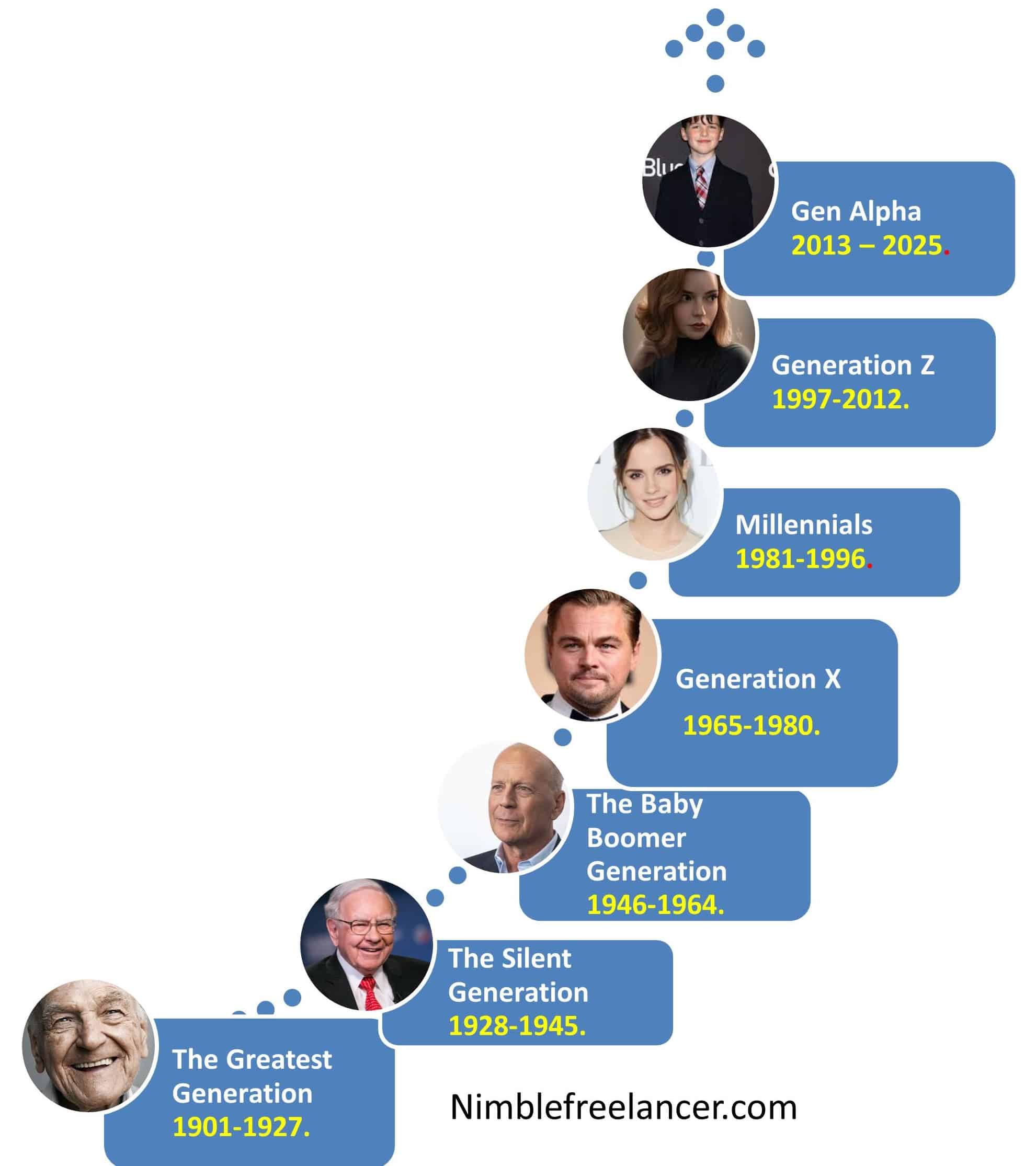Generation Z, colloquially known as Zoomers, is an incredibly influential demographic. Generally accepted as those born between the mid-1990s and early 2000s, this generation is defined by their big tech savviness and progressive values. They are the first digital natives, having grown up with technology and social media woven into their lives since day one. As such, they possess a unique set of values that sets them apart from their predecessors.
Generation Z should be smartly segmented in advertising and all kinds of marketing. This generation has unique characteristics.
One of the most notable traits of Generation Z is their preference for digital communication over face-to-face interaction. Thanks to the prevalence of smartphones and social networks, they now have access to more people than ever – making it easier for them to express themselves and make meaningful connections. This has led some to dub them “The Social Media Generation” or “Snapchatters” – a nod to the platform’s popularity among this demographic.
What Years are Gen Z?
Generation Z, or Zoomers, represents generations born between 1997 to 2012. However, we should take the year range roughly because Zoomers are usually born between the mid-1990s and early 2000s.
Based on the most common classification, generation names are:
- The Greatest Generation – born 1901-1927.
- The Silent Generation – born 1928-1945.
- The Baby Boomer Generation – born 1946-1964.
- Generation X – born 1965-1980.
- Millennials – born 1981-1996.
- Generation Z – born 1997-2012.
- Gen Alpha – born 2013 – 2025.

Regarding values, Zoomers are far more socially conscious than their predecessors: from environmentalism to gender equality, this generation is passionate about issues that matter. Studies show that Zoomers are likelier than Millennials to have liberal views on social issues such as immigration or LGBTQ+ rights. What’s more, many Zoomers also prioritize financial stability in their future aspirations; in comparison with older generations who focused on career advancement and prestige above all else, this newer generation prizes earning potential and job security over everything else when embarking on a career path.
Unlike other generations before them, Zoomers also tend to be highly tech-savvy. With many growing up surrounded by smartphones and laptops since childhood – not to mention easy access to coding classes via platforms like Codecademy – there is a greater understanding amongst this demographic of how technology works compared to older generations who had less exposure growing up. As such, many believe that Generation Z will lead us into a new era of technological advancement – one where we may even find ourselves living in a world where computers take over mundane tasks like paperwork or customer service calls from human operators!
Why are Gen Z called Zoomers?
The term Z or Zoomers is created using Boomer and Zooming. The baby boomer generation (1946-1964) was born during a baby boom, while the new Z generation represents physically active baby boomers. On the other hand, “zooming” means “move with great speed and energy.” Using these two words, zoomers become a new, active, technology-oriented generation that moves quickly.
Zoomers have already begun leaving their mark on society through various cultural phenomena: from TikTok dances going viral online, which revolutionized music consumption habits; to famous YouTube vlogging stars amassing millions of followers worldwide; it seems clear that this generation will continue shaping culture for years (if not decades) down the line. Moreover, because Zoomers comprise almost 40% of today’s population – outnumbering even Millennials– companies are increasingly reorienting their strategies towards this younger demographic to stay competitive in the digital age.
Generation Z’s main characteristics are:
- Generation Z, or Zoomers, is the most tech-savvy generation ever. Having grown up with smartphones and tablets in their hands, they are comfortable using technology in almost every aspect of their lives. They have become adept at multitasking, quickly absorbing information from multiple sources simultaneously.
- Zoomers value experiences over material possessions, prioritize work-life balance, and seek meaningful connections with those around them. They are highly informed about current events and global trends, often more aware of current affairs than past generations at a comparable age.
- Zoomers have a greater appreciation for diversity in all its forms. They want to learn from different cultures and explore unique perspectives on life. This is also reflected in their interest in human rights issues and social justice movements such as #MeToo and Black Lives Matter.
- Zoomers are incredibly creative problem solvers who bring innovative solutions to the table because they can think outside the box and look at situations through unconventional lenses. This creativity is also seen in their art forms; they express themselves visually via platforms like YouTube, social media, podcasts, etc.
- Zoomers are passionate about making a difference in whatever they do, reflected by their strong sense of right or wrong regarding ethical issues or moral dilemmas. They are highly aware of environmental issues such as global warming or pollution and want to make the world a better place for future generations.
- Unlike past generations, Zoomers tend to be more independent thinkers and less likely to conform to traditional norms or expectations that don’t fit their beliefs or values; they want the freedom to be themselves without judgment from others.
It remains uncertain what kind of future we can expect from Generation Z as they continue maturing into adults; however, there is no denying they will have an immense impact on our lives in the future due to their sheer size alone – let alone their being so deeply intertwined with technology since birth! The way things stand right now, it seems clear that Zoomers will undoubtedly leave an indelible mark upon our collective cultural landscape for years (if not decades) – only time will tell what else they may bring forth!
- Facebook Ads to Get Followers! - December 27, 2024
- ClickUp vs. Slack - December 20, 2024
- Mastering E-Commerce Analytics: A Blueprint for Success





